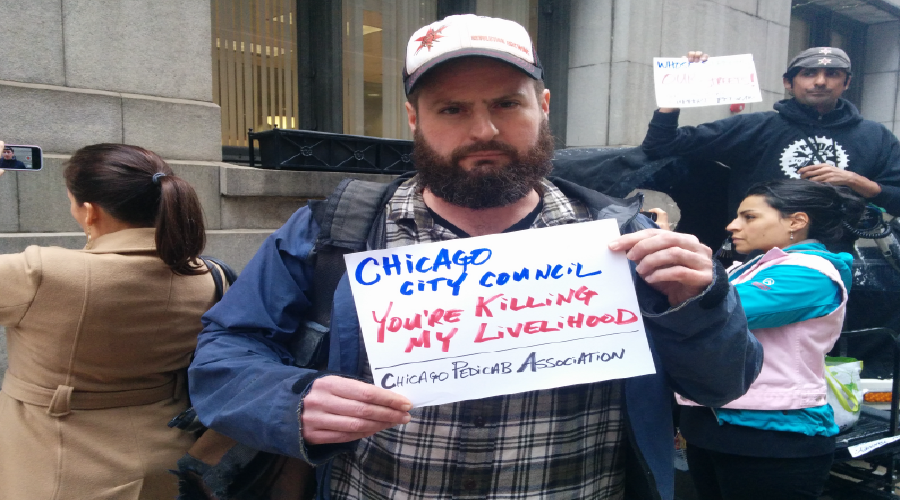Chicago City Council shows deep hypocrisy in passing pedicab ordinance
On Tuesday, Chicago’s City Council’s joint committee on License and Consumer Protection and Transportation and Public Way passed a deeply flawed proposal to regulate the pedicab industry after hours of largely opposing testimony. On Wednesday, the measure passed the full City Council without any changes, showing that Chicago is neither serious about promoting “green” transportation...
On Tuesday, Chicago’s City Council’s joint committee on License and Consumer Protection and Transportation and Public Way passed a deeply flawed proposal to regulate the pedicab industry after hours of largely opposing testimony. On Wednesday, the measure passed the full City Council without any changes, showing that Chicago is neither serious about promoting “green” transportation alternatives or the entrepreneurial spirit it so frequently claims to support.
Despite a strong showing by pedicab workers and advocates at the Tuesday meeting, the ordinance, sponsored by Alderman Tom Tunney, passed with minimal comment and discussion amongst committee members and none in front of the city council. Chicago pedicab operators have repeatedly expressed support for aspects of the proposal, such as requirements to hold insurance for accidents and install seatbelts and lights. But others pointed out that the City never conducted a study on how many pedicabs existed in the city.
The most heavily criticized provision of the law would ban pedicabs from Michigan Avenue and State Street between Congress ave and Oak Street at all times, and throughout the Loop during rush hour. This is the largest market for pedicab operators in the city, whose tourist base enjoy viewing the magnificent mile – a ride which this ordinance would make illegal. But pedicabs fit within the bike lanes, so there’s no reason why they pose a unique risk. And as taxpayers, they should be entitled to use the same roads they support just like cyclists and drivers do.
The ordinance also caps the number of pedicab operators at 200. While no official number of the pedicab operators is available, the Chicago Sun-times reports an estimated 400 people work in the pedicab industry – a strange policy in a city with a unemployment of 9%.
While some are hopeful that the worst parts of the ordinance can be removed later on, policies like these reinforce the perception that Chicago is a city where innovate businesses can be tossed aside, depending on how much or little clout they have with politicians and regulators. Policy affects lives and bad policy costs jobs. So as the City and state continue to fail small business owners and entrepreneurs, it’s no surprise that so many are leaving to find better opportunities elsewhere. Whether or not the city will take steps to change this culture remains to be seen.

